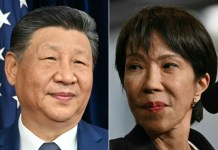India has objected Singapore’s proposal at the World Trade Organization (WTO) to exempt food purchases made for humanitarian purposes from export restrictions. Jamaica and Egypt also opposed Singapore’s proposal while, the EU, New Zealand, Canada, Costa Rica, Philippines, Australia and Argentina supported it.
- Can ARAB NATO – The Middle East Strategic Alliance (MESA) Counter Iran?
- Eight Countries Including India, Japan To Get US Concessions To Buy Iranian Oil
India argued that export restrictions were a vital policy instrument for handling sudden shocks in the domestic food supply.
Singapore’s paper on the impact of export prohibitions or restrictions on foodstuffs purchased for non-commercial humanitarian purposes by the United Nation’s World Food Programme (WFP) highlighted that these lead to significant inefficiencies in humanitarian food assistance delivery. It emphasized the increased amount of time to deliver food, increased risk of food being lost due to longer transportation, increased administrative, transportation and distribution costs. The paper also stressed that ultimately, fewer beneficiaries received food from WFP.
Jamaica, representing the African, Caribbean and Pacific Group of States (ACP) said they would not be able to agree to any new notification obligations. Egypt also backed off Singapore’s proposal saying “its group was cautious about new limitations on export restrictions, given the very sensitive food security situation in some countries.”
New Zealand said it could not understand as to why WTO members were not ready to commit in this area. There was evident differences between the members at the talks. The Chair even warned that if December 2019 comes and members are not close to resolving their differences, it will be very difficult to make progress in the short run-up to the Astana Ministerial Conference in June 2020.




